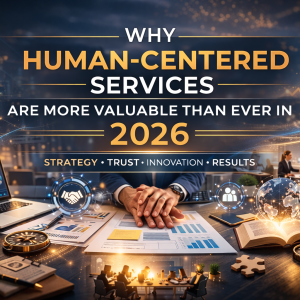The gig economy has already reshaped how millions of people work, offering freedom, flexibility, and a world beyond the 9-to-5 grind. But as we step into 2025, we’re seeing the next big transformation — Gig Economy 3.0 — where AI-powered tools, hybrid skill sets, and cross-industry opportunities are redefining what it means to be a freelancer or part-time professional.
This isn’t just evolution — it’s acceleration.
From Gig 1.0 to 3.0 — A Quick Recap
- Gig Economy 1.0: Platforms like Uber, Fiverr, and TaskRabbit emerged, connecting workers to short-term jobs at scale.
- Gig Economy 2.0: Remote work and global connectivity allowed freelancers to tap into international clients, with specialized marketplaces for skills like design, writing, and coding.
- Gig Economy 3.0: The next phase blends human creativity with AI-enhanced productivity, encourages multi-disciplinary expertise, and opens doors across industries — not just within traditional gig categories.
According to McKinsey – The Gig Economy’s Next Stage, this shift is expected to significantly increase earnings potential while diversifying the kinds of work available.
1. AI-Enhanced Services
AI isn’t replacing freelancers — it’s supercharging them.
- Writers are using AI to speed up research and editing.
- Designers are generating rapid concept drafts to wow clients faster.
- Consultants are automating routine analysis to focus on strategic insight.
This tech-human collaboration is raising productivity and allowing freelancers to offer premium-level services without premium overhead.
2. Hybrid Skill Offerings
In Gig Economy 3.0, specialization still matters — but versatility is the new competitive edge.
- A social media manager who can also produce short-form video content.
- A web developer who understands UX writing.
- A virtual assistant with project management expertise.
The more cross-disciplinary your skill set, the more in-demand (and better compensated) you become.
3. Multi-Industry Opportunities
The next wave of gig work is breaking down industry silos.
- A freelance illustrator could work on a children’s book one week and an NFT art collection the next.
- A part-time financial analyst might split time between a fintech startup and a non-profit.
- A hospitality consultant could pivot to advising co-working spaces.
The gig economy’s boundaries are disappearing, giving workers freedom to explore multiple passions while building a varied, resilient career.
The Role of MPS in Gig Economy 3.0
At My Premium Service (MPS), we’re building a platform that’s ready for this new era. Whether you’re a freelancer, part-time professional, or business in need of talent, MPS offers:
- Flexible opportunities — from one-off gigs to ongoing partnerships.
- Cross-industry access — discover roles and clients you’d never find on niche-only platforms.
- Tools for growth — connect, collaborate, and showcase your skills in a marketplace designed for the modern worker.
📌 Final Thought: Gig Economy 3.0 isn’t about chasing the next quick job — it’s about building a future-proof career that blends adaptability, technology, and creativity. With MPS, you’re not just finding work — you’re finding your place in the next generation of work itself.






